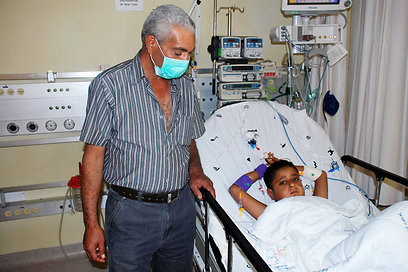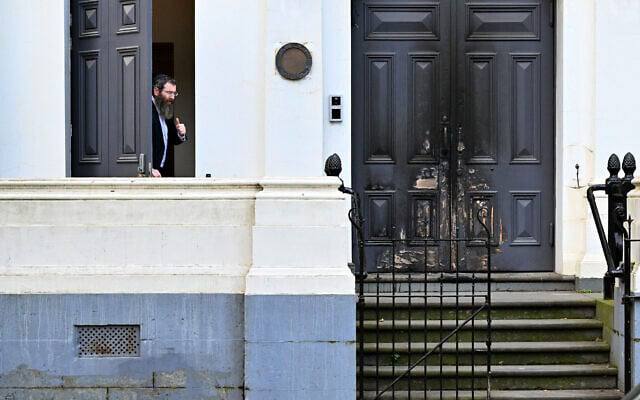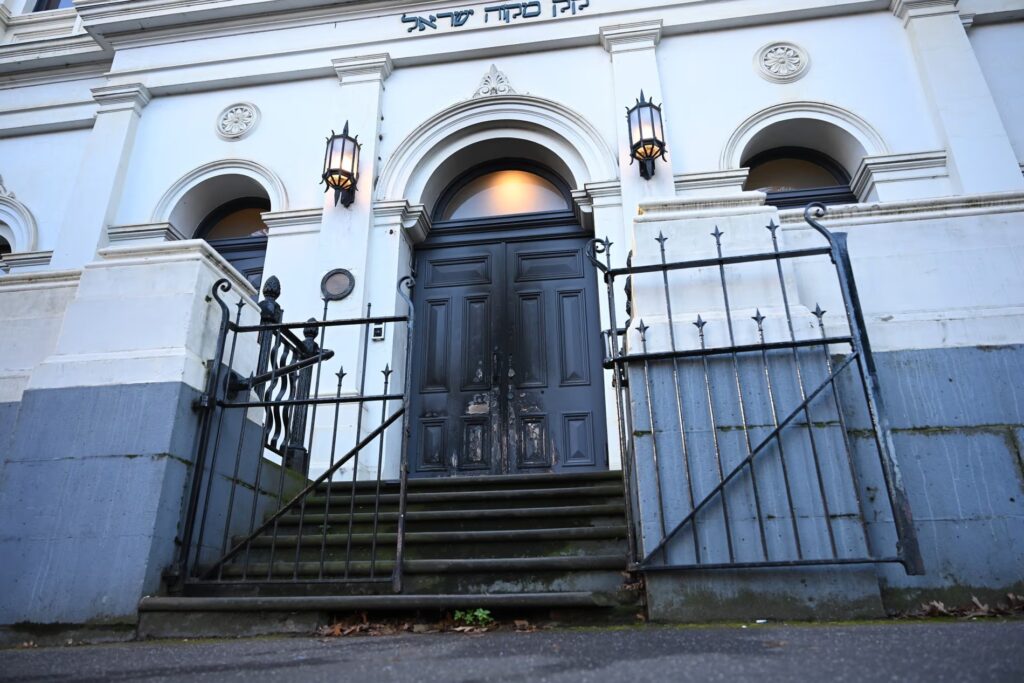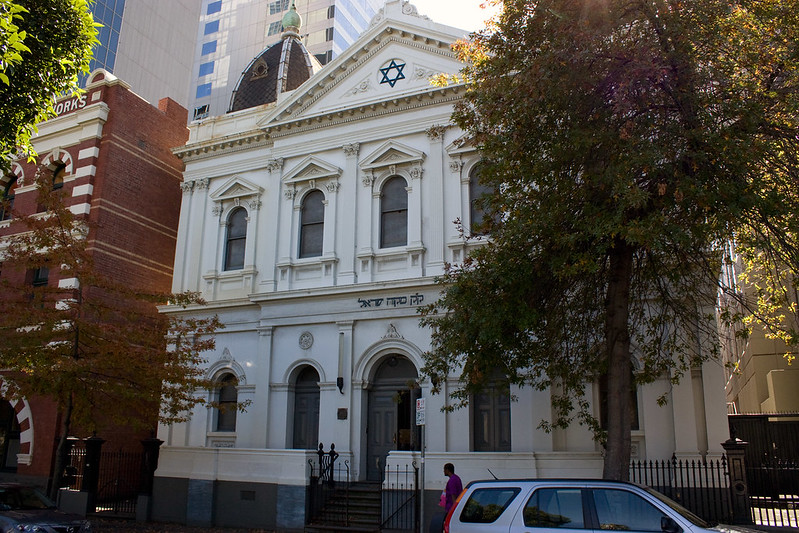UPDATES
Lifesaver and Model of Coexistence, yet still Condemned: The Israeli Health System
June 7, 2013 | Or Avi Guy

Or Avi-Guy
Here is a story you will almost certainly never see in the mainstream media (well, outside of Israel, that is). When three-year-old Noam Naor, who tragically fell from the fourth floor, was declared brain-dead after being rushed to a nearby hospital, his parents, both religious Jews, decided to donate their son’s kidneys. His match: a ten-years-old Palestinian boy from Bethlehem, named Yakoub Ibhisad.
Noam’s parents gave their consent – the fact that the organ was donated to a non-Israeli did not matter. The only thing that mattered is that there was a little boy, who was sick and treated in an Israeli hospital – Sha’are Zedek medical centre in Jerusalem – for dialysis, and who needed that kidney to get better, to be healthier. Now, Yakoub is recovering from the transplant operation, which was conducted in Schneider Children’s medical centre in Petah Tikva, and will be discharged soon. His father, Samir Ibhisad, expressed relief and gratitude to Noam’s parents:
“I haven’t the words to thank the family that saved my son’s life. We’ve been through many years of suffering when my son was on dialysis and his life was in danger. We are grateful for the donation and hope that God willing the couple will be blessed enough to have another child.”
It is always a heartbreaking situation when parents are asked to donate their child’s organs, but in this case there was an added meaning for Noam’s parents, as expressed by Sarit, Noam’s mum:
“I thought about [Israeli President] Shimon Peres’ efforts for peace with our neighbours and I realised I was making the right decision […] Knowing I saved a life gives me great comfort and power to go on. It was not an easy choice, but today I am happy I made it. It doesn’t matter that it is a Palestinian boy, I wish it would bring us peace.”
Peres himself was moved by the transplant: “It’s one of the most moving contributions to peace,” he told Sarit, “it shatters all prejudices.”
This is but a small reflection, a heart-warming example, of the health services and cooperation between Israel and Palestinians. In fact, only last month the Palestinian Authority’s (PA) health minister, Hani Abdin, visited Hadassah Ein-Kerem hospital in Jerusalem with a delegation of Palestinian officials. After the visit, the PA daily newspaper Al-Hayat Al-Jadida reported that in Hadassah hospital 30% of the children patients are Palestinian, and that the teaching hospital is also training 60 Palestinian doctors, that are intended to return to practice in Palestinian medical facilities.
Hadassah Ein-Kerem hospital’s director Dr Yuval Weiss also commented about the medical cooperation between Israel and Palestinians:
“Hadassah considers cooperation with its Palestinian neighbours a high priority. Medicine is a bridge to peace. Borders don’t exist when it comes to caring for people.”
And in general this attitude epitomises the Israeli health system. The system is among the most integrated elements of Israeli society, where Jewish and Arab doctors, nurses and other caregivers routinely work side-by-side to treat both Jewish and Arab patients without worrying about who is who.
And indeed, Israel proves again and again that when it comes to medical and humanitarian needs and emergencies- even its often troubled borders are no obstacle: The Israeli Coordinator of the Government Activities in the Territories (COGAT), approves hundreds of life saving medical treatments for Palestinians, through the Civil Administration and the Gaza District Coordination Liaison (DCL), and in cooperation with the PA health ministry. In 2012 alone, 210,469 Palestinians entered Israel to receive medical treatments in Israeli hospitals. 16,553 Palestinians from the Hamas-controlled Gaza Strip were also allowed entry to Israel to receive medical treatments in either Israeli or West-Bank medical facilities. According to a 2012 report by the World Health Organisation (WHO), Israel approved 91.5% of the applications submitted by Palestinians from Gaza seeking medical treatment in Israel, 7.2% were approved pending security checks, and only 1.3% were rejected.
Moreover, the health coordinator at the Civil Administration, Dalia Bessa, had provided special movement permits to Jerusalem-based mobile clinics and their staff, which operate in West Bank communities and provide ongoing medical treatment to Palestinian patients, especially those suffering from diabetes and breast cancer. Bessa stated that:
“We assist the hospitals in Jerusalem as much as we can to operate the mobile clinics with cancer, eye and diabetes specialists, in order to bring them to the inhabitants in need in all the villages situated away from the cities.”
COGAT officials also stated that:
“We will continue to assist the Palestinian population to the extent required, in the transportation of Palestinian patients for medical treatment in Israel, as well as holding workshops and practical and theoretical seminars in Israel, in order to provide the Palestinian doctors with better tools and improve the health system in the Judea and Samaria region and in the Gaza Strip.”
Israel is also providing urgent medical care to dozens of Syrians- civilians and soldiers- who were wounded in the civil war in a field hospital the IDF (Israeli Defence Force) has established by the in the Golan. Several Syrians who were more severely injured and needed intensive care were even transferred to Israeli hospitals such as Ziv Medical Centre in Tzfat. Recently Israel has also provided Syrian refugees with life-saving medical treatments when a four-year-old Syrian refugee girl, who suffered from a serious heart condition, underwent an operation through the Save a Child’s Heart Program. It was reported that the program’s expert medical help was offered to three other Syrian children suffering from a similar condition who are currently in Jordan, but their families refused.
So, just to recap: Israel is treating Palestinian patients seeking life-saving medical treatments, and assisting in training of Palestinian doctors and medical staff. It also helps casualties from the Syrian civil war and even provides medical help to Syrian refugees who are in third countries.
What could possibly be the response by the international community? Applauding the Israeli health system for placing the value of life above politics, conflict or borders? No, of course not. We’re talking about Israel here.
Israel, in what might be termed an example of cruel cynicism, if it sadly has not become the norm, was condemned by the WHO for supposedly causing a health crisis for Palestinians (Yes, this is the very same organisation that wrote the 2012 report about tens of thousands of Palestinians receiving medical treatment in Israel. In the UN system, politics routinely trumps what professional civil servants report). The only geographic area condemned by the WHO annual conference, held in May, for its “health conditions” was “the occupied Palestinian territory, including East Jerusalem, and in the occupied Syrian Golan,” after discussing reports, including one from Syria and one from the Palestinians, both blaming the “occupation” for a range of so-called health risks ranging from the ridiculous to the extremely exaggerated.
One such absurd accusation is that Israel allegedly has been burying and dumping nuclear and radioactive waste in the Golan and planting nuclear and radioactive land mines along the border with Syria. Are they really suggesting that such imaginary acts, if they actually occurred, could somehow target and harm only Syrians, and not the Jewish population making up roughly half the inhabitants of the Golan?
With the raging civil war in Syria, and the subsequent disruption in health services, it is beyond surreal that Israel is somehow being accused of placing Syrians in medical danger, when in reality it is saving the lives of Syrians whenever this becomes possible.
Meanwhile, Israeli innovations in the fields of health and medicine are actually benefitting people around the world, far beyond Israel’s narrow borders. To give but one example of such innovation (and many more have been compiled by Israeli blogger Michael Ordman here, here and here), an Israeli team just announced the development of a bionic contact lens which is designed to enable people who are blind from birth to see, using non-invasive procedures and technologies. The new contact lens, unlike existing bionic eyes, is based on cornea stimulation, and according to Zeev Zalevsky, head of electrical Engineering and Nanophotonics at Bar-Ilan University, who headed the research team, this new technology “attempts to deal with the problems of existing bionic eye technologies to enable even people who are blind from birth, in whom the brain region that processes visual information is not developed, to see.” The contact lens’ feasibility is currently being tested on seeing people, before it can be clinically trialled.
This is, however, not the only device developed in Israel to give visually-impaired their sight back – an Israel company, OrCam (Or means “light” in Hebrew) – has developed eyeglasses that allows the blind and visually impaired to be more independent in their daily lives as it allows them to read labels, menus and even newspapers and to walk independently in the street, able to read traffic light signals and street signs. It combines and balances accuracy and speed, and can drastically improve the quality of life of those who use it.
These new technological and medical developments are only the most recent in a long, long line of Israeli innovations which save and improve the lives of individuals, families and communities around the world.
It would be fair to say that the Israeli health system has been a unique success story – a model of humanitarian considerations trumping politics, as well as providing benefits both to neighbours such as the Palestinians living under their own health systems and Syrians, and offering unique medical innovations whose benefits are felt worldwide. It’s just a pity that it is politics which largely prevents this success story being recognised – and where possible, emulated.
Tags: Israel





